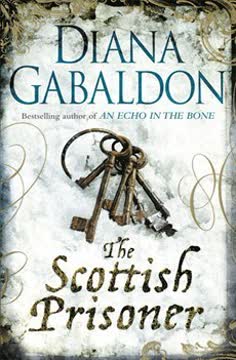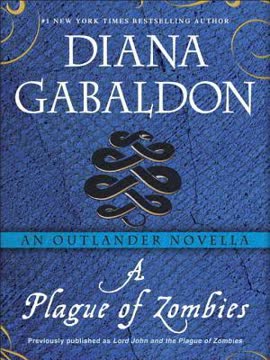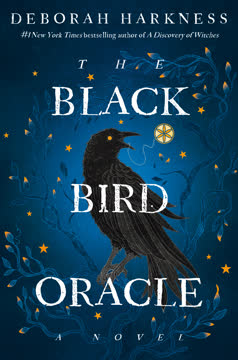Plot Summary
Secrets Behind the Screen
Major Lord John Grey, a principled officer in 1757 London, stumbles upon a secret that could destroy his cousin Olivia's future: her fiancé, Joseph Trevelyan, appears to have syphilis. The revelation comes not through gossip, but by accident—Grey glimpses a telltale sore while both men are at their gentlemen's club. The knowledge is a private torment; Trevelyan is not just a social acquaintance but family by impending marriage. Grey's sense of duty and honor is immediately at war with the need for discretion, as the scandal would ruin Olivia and the family's reputation. The chapter sets the tone: London's glittering surface hides rot beneath, and Lord John, with his own secrets, is forced to navigate a world where truth is dangerous and silence can be deadly.
Widow's Walk and Whispers
Grey's military life collides with the city's underbelly when he joins Lieutenant Stubbs to visit the widow of Sergeant O'Connell, a soldier recently killed in a street brawl. The visit reveals more than expected: O'Connell's widow, Francine, is battered and pregnant, and her relationship with the Irish apothecary Scanlon is suspiciously close. The apothecary's nervousness and the widow's prideful refusal of charity hint at deeper secrets. Grey's instincts tell him that O'Connell's death is not a simple matter of drunken violence, but something more sinister—possibly tied to espionage. The emotional tension is palpable, as Grey is drawn into the pain and resilience of the city's poor, and the first threads of a larger conspiracy begin to emerge.
Spies, Lies, and Shadows
Grey learns from Colonel Quarry that O'Connell was suspected of being a spy, possibly selling British military secrets. The plot thickens: O'Connell's death coincides with the disappearance of Jack Byrd, a footman employed by Trevelyan and tasked with following O'Connell. The missing requisition papers could reveal the strength and disposition of British regiments—priceless to the enemy. Grey is reluctantly tasked with investigating, as his own recent disgrace makes him the only senior officer above suspicion. The emotional weight of duty, family, and the threat of scandal presses on Grey, who must now untangle a web of deceit that could have fatal consequences for many.
The Barber's Son Arrives
Tom Byrd, Jack's younger brother, arrives at Grey's door, offering his services as a valet. Tom's loyalty and resourcefulness quickly prove invaluable as Grey investigates O'Connell's corpse, discovering evidence of a brutal, deliberate killing. The body's condition suggests a personal vendetta, not random violence. Meanwhile, Tom's concern for his missing brother adds a human urgency to the case. The chapter is rich with the emotional complexity of loss, loyalty, and the search for justice, as Grey and Tom form a bond that will carry them through the dangers ahead.
A Funeral in Chaos
O'Connell's funeral erupts into chaos as two women—his widow Francine and his mistress Iphigenia Stokes—fight over his body. The scene is both farcical and tragic, exposing the messy realities of love, betrayal, and survival in London's lower classes. Grey's attempt to mediate reveals the deep wounds left by O'Connell's violence and the precariousness of women's lives. The episode also introduces the Stokes family, whose Greek heritage and seafaring connections hint at possible links to smuggling and espionage. The emotional arc is one of frustration, empathy, and the realization that the truth is rarely simple.
The Green Velvet Clue
Grey's investigation leads him to a brothel in Meacham Street, where he seeks evidence of Trevelyan's disease and possible infidelities. The madam, Magda, and a Scottish whore named Nessie provide both comic relief and crucial information. Grey learns that Trevelyan visits the brothel not for sex, but to don a green velvet dress and disappear into the night—suggesting a secret life or clandestine meetings. The motif of disguise and hidden identity deepens, as Grey's own vulnerabilities and memories of past love surface. The emotional tone is one of intrigue, discomfort, and the growing sense that everyone in London wears a mask.
Molly-House Intrigues
Grey's search for answers takes him into the world of molly-houses—clandestine clubs for men who love men. At Lavender House, he navigates coded language, flirtation, and the ever-present threat of exposure. The proprietor, Caswell, is both a gatekeeper and a blackmailer, trading in secrets for profit. Grey's own sexuality, usually hidden, is both a tool and a vulnerability in this world. The emotional arc is tense and fraught, as Grey risks his reputation and safety to uncover the truth about Trevelyan's activities and the possible connection to espionage.
The Private Matter Deepens
As Grey closes in on the truth, the stakes rise. Trevelyan, cornered, poisons Grey with mercury, hoping to incapacitate him and buy time for escape. Meanwhile, the mysterious green velvet dress reappears—this time on a corpse, its face smashed beyond recognition. The dead man is revealed to be Reinhardt Mayrhofer, an Austrian noble and spy, killed by his wife Maria in a fit of rage and despair. The plot's emotional core is the desperation of love and the lengths to which people will go to protect those they care for—or to save themselves.
The Man in Green
Trevelyan, Maria, Scanlon, and the Byrd brothers flee England aboard the Nampara, bound for India. Grey, barely recovered from poisoning, pursues them, only to be trapped on the ship as it sails. The truth comes out: Trevelyan and Maria are lovers, married in secret, and both infected with syphilis. Scanlon, the apothecary, has deliberately infected them with malaria, hoping the fever will cure the pox—a desperate, dangerous gamble. The emotional arc is one of exhaustion, hope, and the bittersweet possibility of redemption.
Poison, Plague, and Cure
As Maria battles for her life, Grey learns the full story: O'Connell's death was the result of vengeance by Scanlon and his friends, not espionage. The missing military papers are recovered, but too late to prevent the damage. Trevelyan's flight is not just escape, but an act of love and self-preservation, as he and Maria seek a new life in India, free from the shame and danger of their past. The emotional climax is a meditation on the limits of justice, the power of love, and the cost of secrets.
The Truth Unveiled
Back in London, Grey's actions have far-reaching effects. Olivia's engagement is broken, but her reputation is preserved. The Scanlons disappear, the Stokes family fades into the city's shadows, and the British government quietly covers up the scandal to avoid embarrassment. Grey is left to reflect on the nature of truth, the burden of secrets, and the impossibility of perfect justice. The emotional resolution is one of weary acceptance and the hope that, in the end, some good has come from so much pain.
Love, Loyalty, and Escape
As the dust settles, Grey finds himself changed by the ordeal. His relationship with Tom Byrd deepens into mutual respect and affection, and he is offered a new posting—perhaps a chance at happiness or at least peace. Trevelyan and Maria's fate remains uncertain, but their love, however flawed, is a testament to the human capacity for hope. The emotional arc is one of healing, forgiveness, and the recognition that life goes on, even after the worst has happened.
The Cost of Silence
Grey's final reflections are on the nature of duty and the personal cost of keeping secrets. He has protected his family, served his country, and preserved his own integrity—but at great personal risk and emotional toll. The world he inhabits is one where truth is dangerous, love is fraught, and justice is always imperfect. Yet, in the end, he finds solace in small victories, loyal friends, and the knowledge that he has done what he could.
Fireworks Over London
The novel ends with a grand celebration in London, marking a British victory in India. The city is alive with fireworks, music, and the promise of new beginnings. Grey, surrounded by friends and family, contemplates the future—his own, Olivia's, and that of a nation on the brink of change. The emotional tone is one of bittersweet joy, as the past cannot be undone, but hope endures. The story closes on the image of fireworks lighting the night, a symbol of both destruction and beauty, and the enduring human spirit.
Characters
Lord John Grey
Lord John Grey is a man of honor, intellect, and hidden desires. As a major in the British Army, he is bound by duty to his family and country, yet his personal life is fraught with secrets—his homosexuality, his unrequited loves, and his acute sense of justice. Grey's psychological complexity is the heart of the novel: he is both an insider and outsider, navigating the rigid hierarchies of 18th-century London while always aware of the dangers of exposure. His relationships—with his family, his subordinates, and the men and women he encounters—are marked by empathy, restraint, and a longing for connection. Over the course of the story, Grey grows from a man burdened by secrets to one who accepts the ambiguities of life, finding strength in loyalty and the courage to act, even when the cost is high.
Joseph Trevelyan
Trevelyan is the quintessential gentleman: wealthy, well-connected, and outwardly impeccable. Beneath the surface, however, he is driven by ambition, desire, and a willingness to bend the rules for personal gain. His engagement to Olivia is a strategic alliance, but his true passion is for Maria Mayrhofer, with whom he risks everything. Trevelyan's infection with syphilis is both literal and symbolic—a mark of the corruption at the heart of polite society. His psychological arc is one of increasing desperation, as he tries to outwit fate, only to be undone by love, guilt, and the consequences of his actions. In the end, he is both villain and victim, a man destroyed by the very secrets he sought to control.
Maria Mayrhofer
Maria is an Austrian noblewoman trapped in a loveless, abusive marriage. Her affair with Trevelyan is both an escape and a rebellion against the constraints of her world. Maria's psychological journey is one of suffering and survival: she endures loss, betrayal, and disease, yet refuses to be a passive victim. Her decision to kill her husband is an act of both vengeance and liberation, but it comes at a terrible cost. Maria's strength lies in her refusal to be defined by her circumstances; even as she faces death, she asserts her agency and demands to be seen as a person, not a pawn.
Finbar Scanlon
Scanlon is an Irish apothecary with a soldier's past and a healer's hands. His relationship with Francine O'Connell is both romantic and practical, and his willingness to bend the rules for those he loves makes him both an ally and a suspect. Scanlon's knowledge of medicine is crucial to the plot—his use of malaria to cure syphilis is both innovative and dangerous. Psychologically, Scanlon is a survivor, shaped by hardship and loss, but capable of great kindness and loyalty. His actions are guided by a personal code of honor, even when they conflict with the law.
Tom Byrd
Tom is the younger brother of Jack Byrd, and quickly becomes Grey's indispensable valet and confidant. His youth and inexperience are balanced by a sharp mind, quick wit, and fierce loyalty. Tom's psychological arc is one of growth: he moves from anxious concern for his brother to a position of trust and responsibility, forming a deep bond with Grey. Tom's presence provides both comic relief and emotional grounding, reminding Grey—and the reader—of the importance of kindness and human connection.
Jack Byrd
Jack is a footman in Trevelyan's household, tasked with following O'Connell and reporting on his activities. His disappearance is a catalyst for much of the plot, and his eventual reappearance reveals a man torn between duty, loyalty, and unspoken love. Jack's psychological complexity is revealed in his relationship with Trevelyan, which is marked by devotion and longing. Jack's actions are driven by a desire to protect those he cares for, even at great personal risk.
Francine O'Connell (Scanlon)
Francine is the battered widow of Sergeant O'Connell, pregnant and struggling to survive in a hostile world. Her relationship with Scanlon offers a chance at happiness, but she is haunted by the violence and betrayal of her past. Francine's pride and refusal to accept charity are both a defense mechanism and a source of strength. Her psychological journey is one of reclaiming agency and dignity, even as she navigates the dangers of poverty, scandal, and love.
Colonel Harry Quarry
Quarry is Grey's superior and confidant, a man of action with a keen sense of humor and a deep understanding of human nature. He provides both comic relief and practical support, helping Grey navigate the treacherous waters of military politics and social intrigue. Quarry's psychological strength lies in his ability to balance duty with compassion, and his willingness to trust Grey when others would not.
Malcolm Stubbs
Stubbs is a fellow officer and friend to Grey, providing a counterpoint to the more complex and secretive characters. His straightforwardness and good humor are a source of stability, and his loyalty is unwavering. Stubbs's psychological simplicity is not a weakness, but a strength—he is a reminder that honesty and decency still have a place in a world of lies.
Richard Caswell
Caswell is the proprietor of Lavender House, a molly-house where secrets are currency and blackmail is business. He is both a gatekeeper and a spider at the center of a web, trading in information and exploiting the vulnerabilities of others. Caswell's psychological makeup is that of a survivor: he is amoral, pragmatic, and always looking for an angle. His interactions with Grey are a dance of mutual suspicion and reluctant respect.
Plot Devices
Dual Mysteries and Intersecting Secrets
The novel's structure is built around two intertwined mysteries: the private matter of Trevelyan's disease and engagement, and the public matter of O'Connell's death and the missing military papers. These plotlines intersect through shared characters, overlapping motives, and the ever-present threat of scandal. The use of parallel investigations allows for rich character development, as Grey's personal and professional lives collide. Foreshadowing is skillfully employed—early hints about Trevelyan's behavior, the significance of the green velvet dress, and the presence of spies all pay off in later revelations. The narrative is punctuated by moments of dramatic irony, as the reader is often privy to information that the characters are not, heightening tension and emotional impact.
Disguise, Identity, and Social Masks
Disguise is both literal and metaphorical: characters don costumes, adopt false names, and hide their true selves to survive in a world that punishes difference. The green velvet dress is a recurring symbol of hidden identity, used by both Trevelyan and Maria to navigate dangerous liaisons. The molly-houses and brothels of London serve as liminal spaces where social boundaries blur and secrets are both currency and threat. The motif of masks extends to Grey himself, whose sexuality and emotional life are carefully concealed. The tension between appearance and reality is a constant undercurrent, driving both plot and character development.
Moral Ambiguity and the Limits of Justice
The novel resists simple moral binaries: heroes are flawed, villains are sympathetic, and justice is often elusive. Grey's investigation is hampered by the need for discretion, the threat of scandal, and the competing demands of loyalty, love, and duty. The resolution of the mysteries is bittersweet—truth is uncovered, but at great personal and social cost. The use of historical detail and period-appropriate attitudes adds depth and realism, while the emotional arcs of the characters underscore the human consequences of secrecy and betrayal.
Psychological Realism and Emotional Resonance
The story is as much about the characters' psychological journeys as it is about solving mysteries. Grey's internal conflicts—his sense of honor, his longing for connection, his fear of exposure—are mirrored in the struggles of those around him. The use of close third-person narration allows the reader to experience the emotional highs and lows of the characters, from the terror of discovery to the relief of confession, from the pain of loss to the hope of redemption. The emotional stakes are always personal, even as the plot encompasses matters of national security and social order.
Analysis
Diana Gabaldon's Lord John and the Private Matter is a masterful blend of historical mystery, psychological drama, and social commentary. Set against the richly textured backdrop of 18th-century London, the novel explores the dangers and necessities of secrecy in a world where reputation is everything and the truth can be fatal. Through the character of Lord John Grey, Gabaldon examines the complexities of identity—sexual, social, and moral—and the ways in which individuals navigate systems designed to punish difference. The dual mysteries at the heart of the story—one public, one private—mirror the dual lives led by many of the characters, especially Grey himself. The novel's treatment of love, loyalty, and justice is nuanced and unsentimental: there are no easy answers, and every victory comes at a cost. In a modern context, the book resonates as a meditation on the price of silence, the courage required to live authentically, and the enduring human need for connection and forgiveness. Gabaldon's skillful use of historical detail, psychological insight, and narrative suspense makes Lord John and the Private Matter both a gripping mystery and a profound exploration of what it means to be true to oneself in a world that demands conformity.
Last updated:
Review Summary
Lord John and the Private Matter receives mixed reviews, with many praising Gabaldon's writing and historical detail. Fans appreciate Lord John's character development and the mystery plot, though some find it slow or confusing. The book explores 18th-century London's underbelly and homosexuality, which some readers find intriguing while others feel it's overemphasized. Many Outlander fans enjoy this spin-off, but some struggle without the Jamie-Claire dynamic. Overall, it's seen as a well-written historical mystery with a unique protagonist, though not as captivating as the Outlander series.










